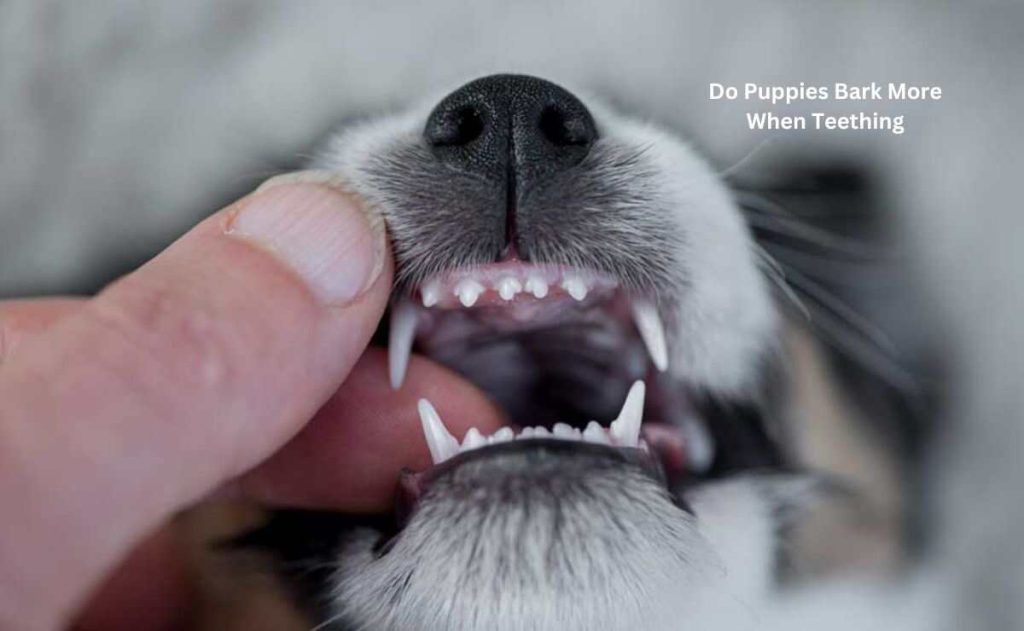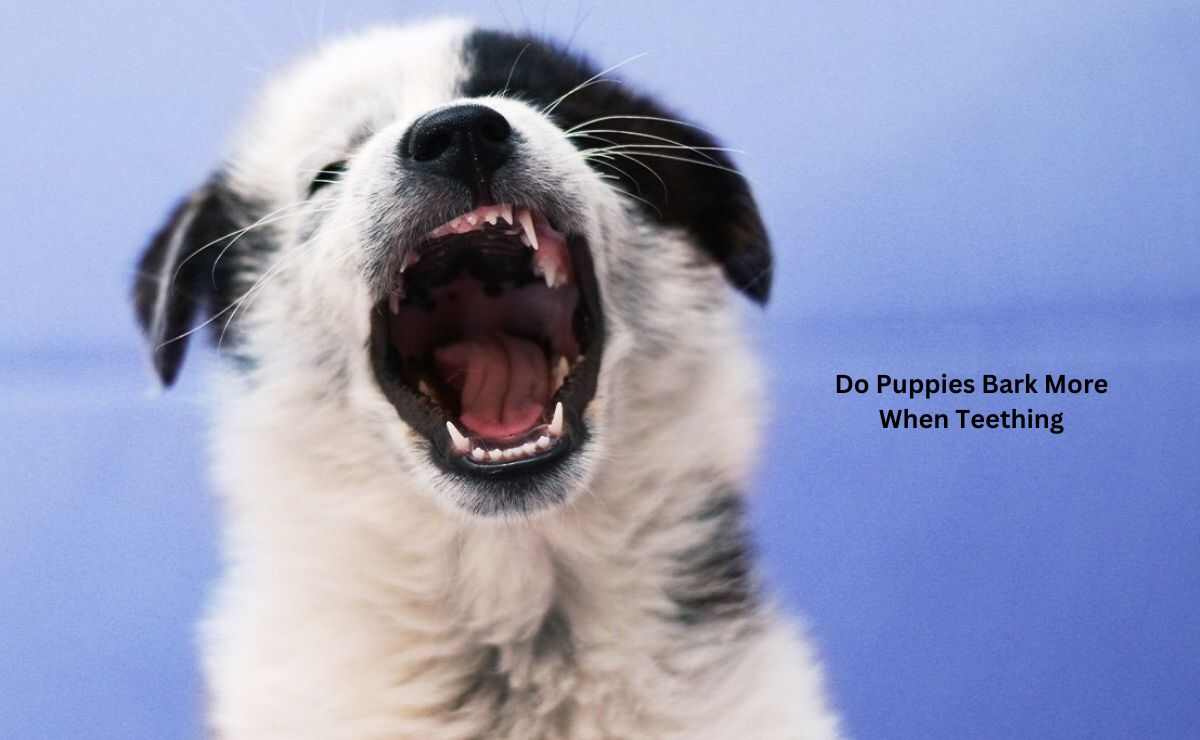Just like a human baby, your puppies will also go through a teething phase. This is a very natural event in their lives where they will grow out of their baby canines and grow in a new set of adult teeth.
It all sounds great and all until one of your couches get destroyed and your pillows have holes in them.
So, what can you do to comfort your pup and save your furniture in the process?
Find this out and more in today’s article Do Puppies Bark More When Teething. Read until the end to find out some important facts about puppy teething, and puppy care. So, let’s begin!
Do Puppies Bark More When Teething – Bark for Comfort

Yes, puppies will bark more when teething. Puppy teething can be a painful experience as they grow and push through their gums. This discomfort can make puppies more agitated and vocal, causing them to bark more frequently than usual.
One thing to point out is that teething puppies may also have a strong desire to chew on objects to relieve their discomfort. Because puppies may bark while gnawing on objects, this chewing behavior can lead to increased vocalization.
The whole process can be quite difficult for animals, especially puppies. As they have fairly delicate gums. So braking is a great soothing mechanism for them to relieve any pain.
Common Age of Tooth Loss
Usually, it takes around 3 to 4 months for a small pup to go through the natural process of teething. By the time they are 7 to 8 months old. They should have full-grown adult teeth. Depending on the breed of puppies, some might have a late delay in their teeth development.
But you should always have a chat with your wet if you see that your puppy has crossed the threshold of 9 months and still is missing some teeth. It is important to notice such an anomaly.
How To Care For Teething Puppies
As I have said, puppy teaching can be a great discomfort for them. The constant irritation of the gums and swollen receptors might cause them to go crazy. Hence the distraction of objects and furniture. Constant chewing can help the pain.
Which is why getting them is a squishy chewing toy. Will get them to leave your things alone. The natural curiosity for new objects will instantly draw them in with the new toy. There are also other alternative methods to calm your puppy down. Such as:
1. Remove the objects: Perhaps the most logical option out of the bunch is to remove the objects that you don’t want to be destroyed by your puppy. Hide your personal belongings, and don’t let them out of the cabinet before 9 months.
You cannot control all the actions of your dog but you can definitely change things the way they are.
2. Spray dog-repellent pheromones: This is a great alternative to get your puppy to behave well. You can go to Amazon and search for dog-repellent pheromones and you would find cans of spray that you could just spray on your objects and the dog will stay away from it.
I would suggest not overusing this spray as it can permanently damage the smell receptors on your puppy. Only use if the object of interest needs to be on display detrimentally.
3. Take them outside: It is a great way to change up their environment and make them familiar with the outside so that if something catches their eyes they will go and chase that thing down and perhaps will make them feel a little bit comforted in the process.
4. Vet visits: if everything you have tried has failed her bully and you just cannot deal with this exuberant puppy. Then visiting a vet doctor is the best option you can have.
Maybe some other issues are going is with the dog that is left undiagnosed. Which is causing them to behave menacingly.
Give Comfort to Puppies and get comfort
It is important to understand that they are also living creature that has pain and discomfort. As a caregiver of them, you must find some solution to their problem and help yourself in the process. Never ever scold your puppy for destroying any items especially when they are teething.
It is a very natural response that is coming from them. As the human in this relationship, you have to be the one to make changes in your house and your lifestyle to make sure they are having the best kind of environment for their growth years.
Consult with their vet to figure out if any additional medication is necessary to ease their painful experience.
The Aftercare
Once there are done teething and all of their adult teeth are growing. The aftercare of the dog’s entire as equally as important as keeping them healthy. It is necessary that before you go in with a doggie toothpaste and toothbrush. They should be familiar with the sensation of being touched on their teeth and mouth area from an early age.
If not you will definitely get bitten by their new set of canines. And that’s no fun for anybody. You should also be prepared that even after they are fully grown dogs they might have the habit of chewing and nipping on household items. So get one new toy every 6 months for their chewing issues.
Final Words
I am going, to be honest, there is a lot to learn about caring for a new puppy. You are going to do a lot of mistakes, but believe me, it does get a lot easier over time. The longevity and the happiness of your puppy depend completely on its caregivers.
As they are in an enclosed environment and have no way to gather anything by themselves.
I hope you enjoyed today’s article Do Puppies Bark More When Teething? There are a lot of things to learn about new puppies, so if you are interested then keep reading our articles to learn better about caregiving techniques for dogs and puppies.
Related Posts
